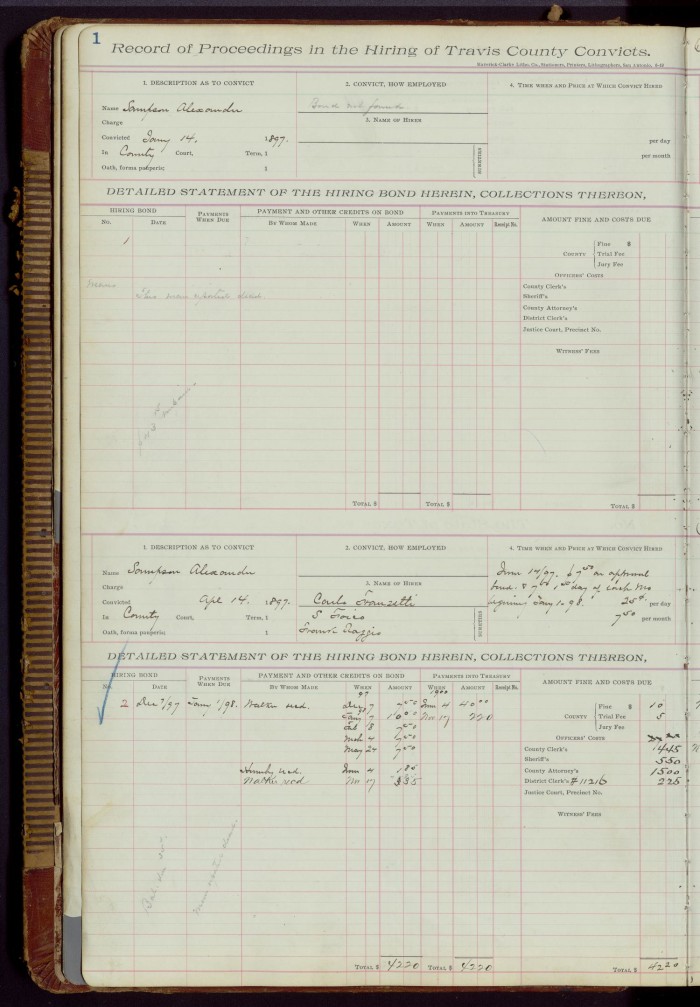Convict Labor Records
Monday, August 31st, 2020 in collection highlights, history of Travis County, Portal to Texas History, research. No Comments
Convict leasing was a system of penal labor in which prisoner labor was leased to private parties. The practice began in Texas and other southern states shortly after the Civil War, when officials realized they had a large population of prisoners to care for and very little money. Leasing the inmates to private individuals appeared to offer a viable solution to this problem. Prisoners, most of whom had committed petty crimes, were forced to complete manual labor at locations such as private iron foundries, quarries, factories and farms.
Convict leasing was extremely profitable for governments and business-owners who used convict labor. However, corruption, lack of accountability, and racial violence resulted in a harsh and exploitative labor system. African Americans endured some the worst abuses under the convict-leasing system. It wasn’t until the system was scrutinized by the press and the widespread abuses became publicized that public opinion started to shift. Texas officially abolished the practice of convict leasing in 1910.
The end of convict leasing did not mean the end of convict labor, however. In Travis County, convicts continued to be put to work to pay off their fines until 1917. Records that document this practice include:
Record of Convict Hirings: 1898-1907
Record of convicts hired out by Travis County from January 1898 to July 1907 to pay court costs and fines incurred, showing file number, name of convict, by what court and at what term sentenced, amount of fine and costs, date of contract, on what type of labor employed, name of party hiring, time employed, price of labor, dates and amounts of payments, and remarks. Arranged numerically by file number and chronologically by date of contract. Index included.
View on the Portal to Texas History: https://texashistory.unt.edu/ark:/67531/metapth1110930/?q=travis%20county%20convict
Convict Labor Record: 1915-1917
Record of labor done by county convicts to pay fines imposed by Travis County courts, showing case number, name of convict, date convicted, court in which convicted, amount of fine and costs, date turned over for labor, and remarks. Arranged numerically by case number.
View on the Portal to Texas History: https://texashistory.unt.edu/ark:/67531/metapth1110934/?q=travis%20county%20convict

In 2018, a cemetery containing what is believed to be the remains of 95 convicts was discovered in Sugar Land, a suburb of Houston. For more information, visit:
https://www.texasmonthly.com/articles/sugar-land-slave-convict-labor-history/